DESIGN MATTERS STILL.
 Monday, April 17, 2023 at 03:17PM
Monday, April 17, 2023 at 03:17PM Editor's Note: This week, Peter reprises his discussion about the importance of Design, which is especially appropriate given the design atrocities from BMW and Mercedes-Maybach of late as seen in On The Table. We also take a look at the all-new 2023 Honda Civic Type R and some special versions of the Mercedes-Benz EQS EV, as well as the 2024 Porsche Cayenne and the 2024 Buick Envista in On The Table. And our AE Song of the Week features "Sister Christian" by Night Ranger. In Fumes, Peter delivers Part XIII of his popular series "The Great Races" – this week giving us a brief history of Nassau Speed Week, and why it was so important - and fun - back in the day. And finally, we have racing highlights from INDYCAR and IMSA at Long Beach, NASCAR from Martinsville and MotoGP from Circuit of The Americas in Austin, Texas - featuring the superb photography by AE Special Contributor Whit Bazemore - in The Line. We're on it. -WG
By Peter M. DeLorenzo
Detroit. In this conclusion of my series on Automotive Design (read Design Matters, Part I and Part II – WG), it’s clear that I place a high value on the efficacy and execution of design. It’s also no secret that I believe that design will maintain its position as the Ultimate Initial Product Differentiator going forward, in fact, even more so than ever before.
This series has generated a lot of comments from within the industry, especially – and understandably so – from the design community. I would say that the vast majority of the comments we received were positive, and that’s gratifying, because I have the utmost respect for the creative talents who work in the design houses all over the world.
As I’ve said many times before, the artisans who toil in design studios are the most influential people in the automobile business. They set the tone for brands and lead the word-of-mouth, “street look” discussions, and their visionary work can make – or break – a car company’s fortunes. It’s grueling work, too, because designers live in a particularly strange Twilight Zone where they have to dwell in the past and present, while working on a future that’s coming well down the road. That means lead designers have to present “new” designs to the media and public that have been basically “baked” three-to-five years before. Then, they go back to their respective studios to put the finishing touches on designs that will appear five years into the future.
This work requires, vision, discipline and a savagely creative mindset that is instantly graded the moment the wraps are taken off of their latest designs. It is a tough, tough profession, but when you talk to designers, most wouldn’t trade it for anything. Seeing something in concept or production form that they had a key role in creating presents a level of exhilaration that’s extremely hard to beat.
That intro was kind of a labyrinthian way of getting to my final discussion topic, which is a question that I get asked all the time: “Given everything you know (and have discussed especially these past few weeks), who’s doing design well right now?”
That’s the billion-dollar question, isn’t it? Design matters more now than at any other time in automotive history. In this 24/7, nanosecond-attention-span world we live in today, the hot “street look” of the moment captures all the attention and interest, and usually results in red-hot sales figures too.
Exotic cars lead the discussion, but just because a car is expensive doesn’t mean its design is automatically compelling. Unless, of course we’re talking about Ferrari. The newest Ferrari – the 296 GTB – is compact, lightweight and has a taut skin that stretches over its fenders and haunches to create a damn-near perfect form. It is simply extraordinary from every angle, and it is the definitive supercar of the moment.
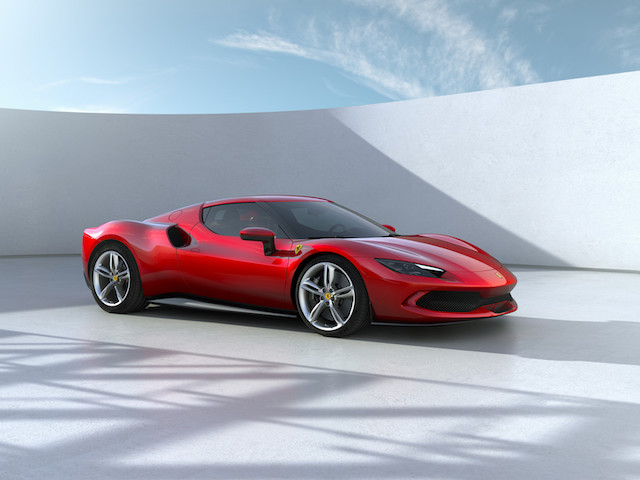
(Ferrari)
The 2022 Ferrari 296 GTB.
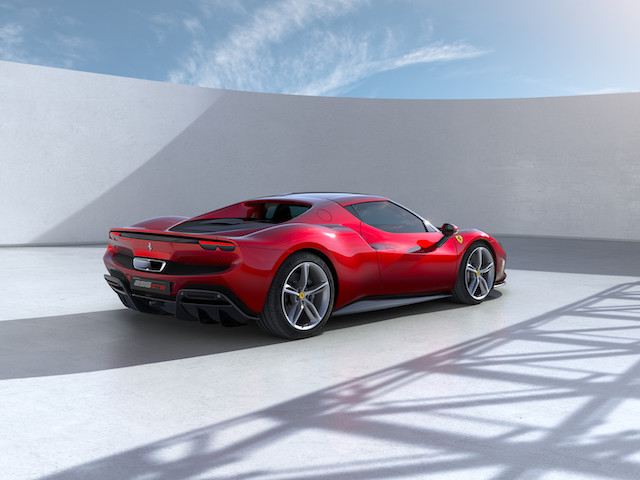
(Ferrari)
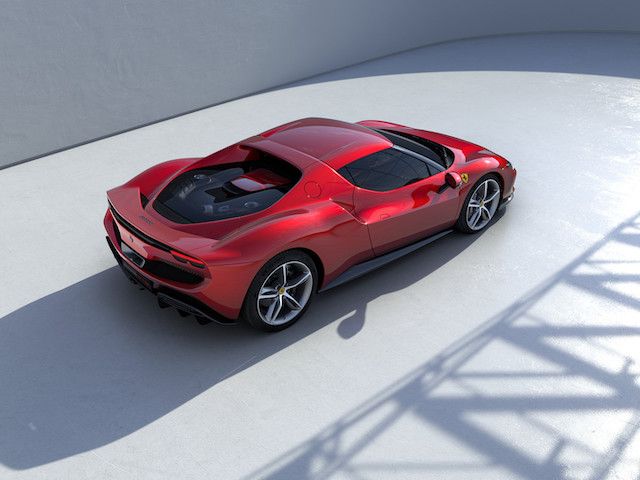 (Ferrari)
(Ferrari)
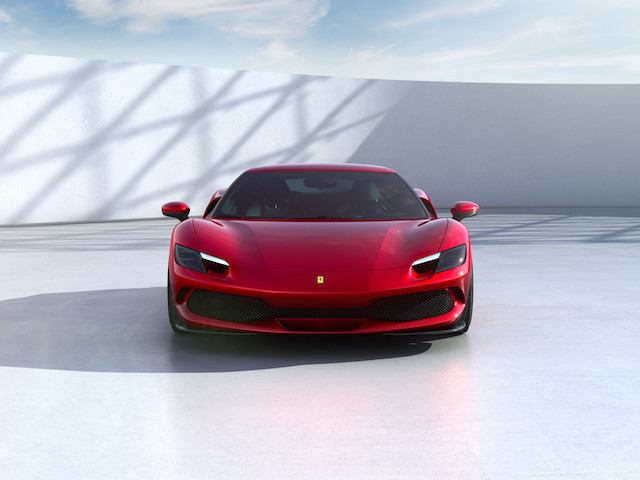 (Ferrari)
(Ferrari)
But you’re probably saying, that’s Ferrari, we expect a Ferrari to have jaw-dropping street presence and compelling design. Fair point, but I can also mention several exotics that have little to no appeal at all. We’ll skip that for now, however.
When I consider contemporary design, I am going to leave pickups, SUVs and crossovers out of the discussion. I am just not interested, and even though they are the overwhelming choice in the mainstream market, they bring nothing to the design table. At all. The exception being the Cadillac Lyriq, which is arriving in showrooms now. It is compelling design that satisfies from all angles.

(GM)
That word “mainstream” is key. It’s one thing to do provocative concepts that shine under the auto show lights, but it’s quite another to bring those high-concept executions to the street. Bill Mitchell, the exceptional design legend who inherited the mantle from Harley Earl and propelled GM to incredible heights during the company’s heyday (1957-1977), specialized in bringing concept car looks to the streets and byways of mainstream America. It was a 20-year period unrivaled in automotive history, in fact. No one did it better, and no one influenced contemporary automotive design quite like Bill Mitchell did. The 1959 Corvette Sting Ray racer; 1963 Corvette Sting Ray; the Mako Shark concepts; the Corvair Monza GT and SS concepts; the 1963 Buick Riviera (although I prefer the ’65), the Oldsmobile Toronado; the Cadillac Eldorado; the Chevrolet Camaro; the Pontiac Firebird, Grand Prix and GTO; and the list goes on and on.
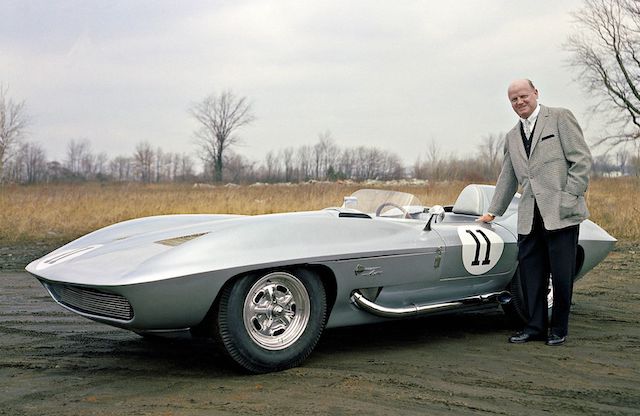
(GM)
Bill Mitchell and the 1959 Corvette Sting Ray racer.
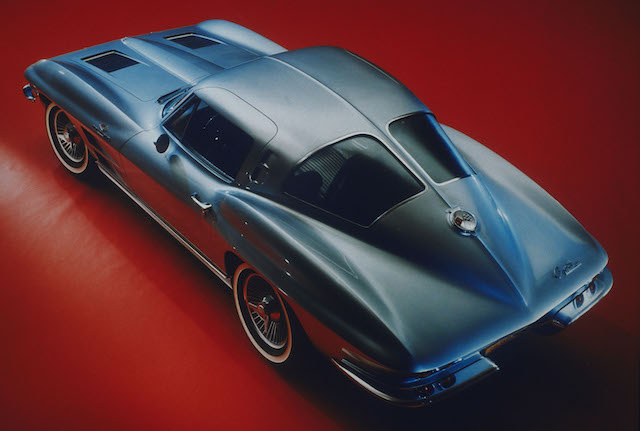
(GM)
The 1963 Corvette Sting Ray.
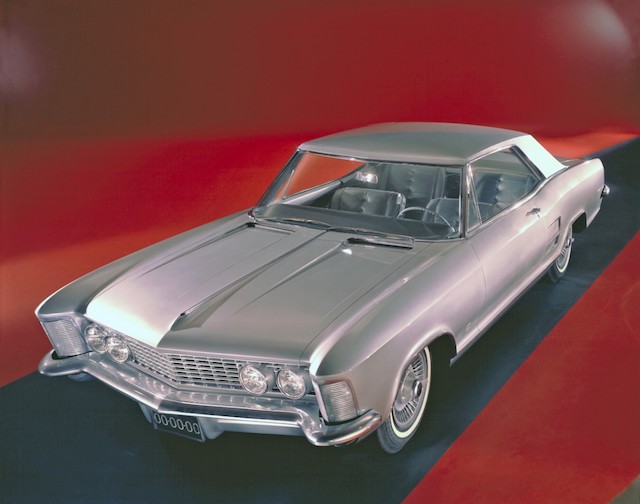
(GM)
The 1963 Buick Riviera.

(GM)
The 1961 Corvette Mako Shark I and 1965 Corvette Mako Shark II.
And when I think of Mitchell and his thoughts on design, and his absolute belief in bringing the “good stuff” to mainstream America, I believe there is one contemporary car that would meet with his approval, and that is the Cadillac Celestiq (images below). Yes, it is super pricey (at around $300,000), but after this machine appeared as a concept last year, it is now due to be built at the end of this year pretty much untouched and intact, and I believe it will resonate with people like few machines have in the last 25 years. Why? It is fluid and expressive, its surface detailing is impressive and its overall form is flat-out gorgeous. I would argue that no mainstream contemporary car manufacturer stuck to its guns like GM Design has with the Cadillac Celestiq. There are no design shortcuts on the Celestiq. GM Design executed it with passion and the result is simply spectacular. The street presence of the Cadillac Celestiq will be unmistakable. Mitchell would have been pleased.
And that’s the High-Octane Truth for this week.

(GM Design Images)
The 2024 Cadillac Celestiq.








